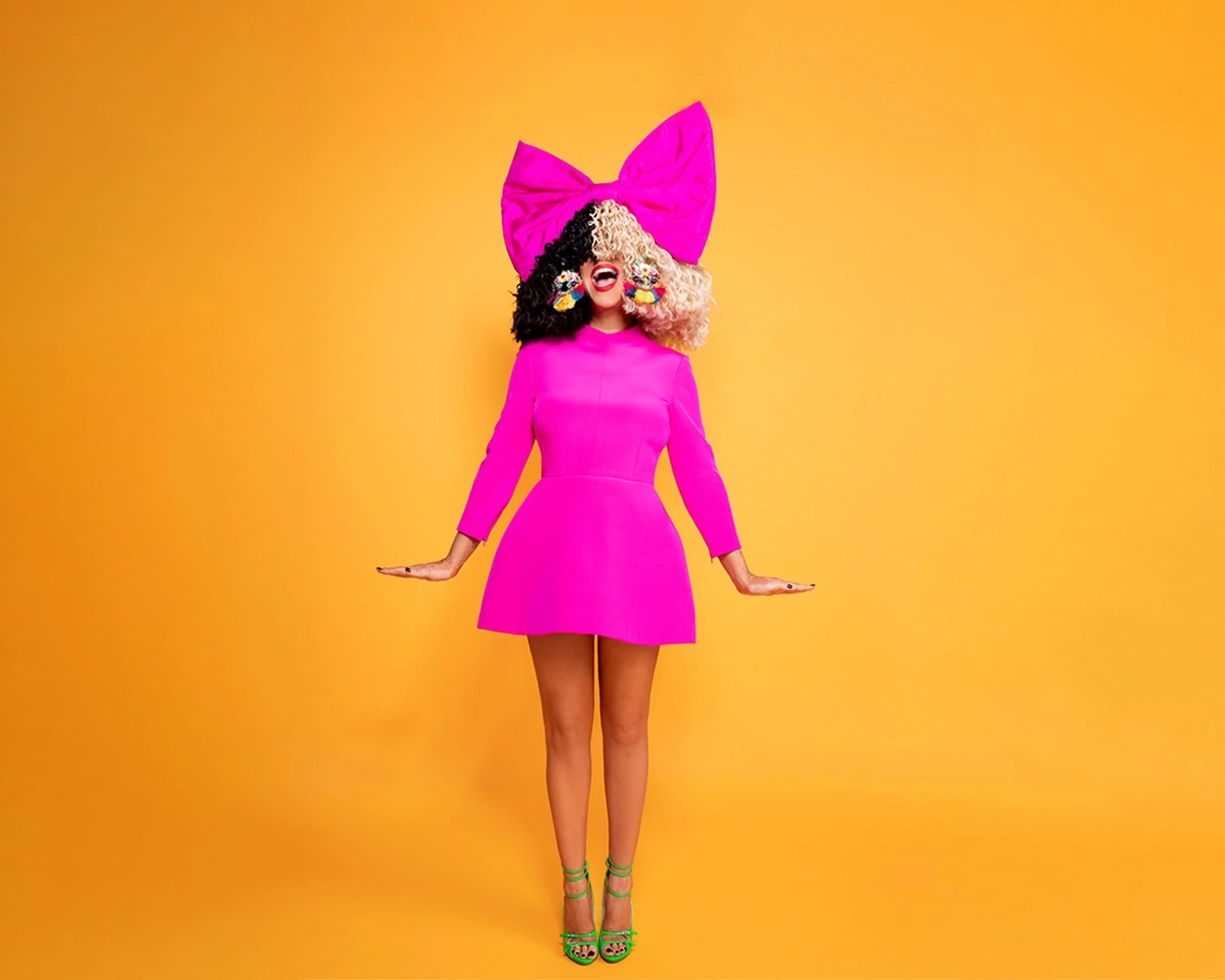
“想象一下,无需屠宰就能生产真材实料的肉……不需要消耗宝贵的土地、水和能源,就可以生产出我们祖祖辈辈人餐盘中的重要主食。”希雅·富勒写道,“这一切都触手可及。”图片来源:希雅·富勒
世界,我想让你变得更好。我希望我的生命有意义。
——《改变的勇气》
从记事起,我一直很喜欢动物。作为歌手,我在全球各地的旅行超一千次,老实说,动物是我遇到的最美好的人之一。我曾拥抱过拥有老灵魂的猪,它们的眼睛能讲述时间的故事;我曾对骆驼歌唱,它们似乎能真正理解我最大的恐惧;我养过的每一只狗都是我的密友。他们是我的安全毯,是暴风雨中的明灯,曾无数次拯救过我的生命。
作为还在为温饱奋斗的年轻艺人,我发誓,等我成功的那天,我将用余生来帮助这些美丽的小生命,去保护他们。我要为这些没有声音的生命发声。这一信念深植我心,如大海般宽广,我的使命也包括为用作食物的动物发声。
因为养狗,我开始吃素。自从知道牛和鸡就像我的小狗一样有感觉,能关心人、能感同身受,我就想要为它们多做些什么。我是个内向的人,但我因此开始无怨无悔地将时间和资源贡献给Best Friends、ASPCA等组织,并且参与了给纪录片Dominion配解说词的工作,想要向人们阐述畜牧业的危害,这一切都是为了兑现年轻时的承诺。
尽管如此,我很清楚,人类有多爱吃肉。肉是人类历史、仪式和传统的一部分,在全球饮食文化中无处不在。然而,它的生产成本很高。在美国,为了生产我们日常食用的肉类和肉制品,每天有2500多万头家畜被屠杀,全世界有2亿头。肉类的生产用掉了全球近三分之一的淡水,地球上超过一半的可耕地被用于放牧和养殖。在美国,70%的抗生素以愈来愈密集的频次用于农场里的牲畜和家禽,也因此加剧了对抗生素的耐药性。还有温室气体排放,肉类生产对气候变化的影响比我们挂到嘴边的交通运输行业更大。
甚至在未来几年,人类对肉类的需求及其产生的不良影响还将加速增长,到2030年,肉类消费量预计将增长14%以上。
对于热爱动物的人来说,这样的数字可能会让你头皮发麻,感到绝望。然而,生活往往峰回路转,绝望可以播下变革的种子。
出于和我一样的对保护环境和动物福利的热情,现在涌现了许多新的企业家,他们在尝试重塑肉类生产和消费的美好前景。他们给这项事业赋予了想象力。
今天,当一头牛被宰杀、被做成牛排或牛肉糜时,我们本质上是把这头牛当成一台机器,把它们吃进去的草变成肉。因此大部分创业者提出了这样一个问题:我们能否用其他东西来代替牛,用一种更有效、更负责任的方式生产出同样令人满意的、与天然肉类一样的产品?
湾区以外的公司,如上行食品公司(Upside Foods)和好肉公司(Good Meat),正是采用了这种方法。例如,他们以无害的方式从奶牛和母鸡身上提取细胞样本,将样本放在搅拌槽式的培养皿中,喂之以营养物质、维生素和矿物质(和农场里饲养的动物一样),从而生产出美味的鸡胸肉或牛腩排。BlueNalu和Higher Steaks也采用类似的方法生产金枪鱼和早餐培根。
还有一家公司与我关系密切,我曾是这家公司的投资者和“代言人”——位于博尔德的邦德宠物食品公司(Bond Pet Foods)。邦德采用的是精酿工艺,用酵母发酵肉类蛋白质,生产营养均衡的猫粮狗粮,这个过程同样不需要杀死任何一只动物。这个领域不容小觑:如果美国的猫狗也能自成一国,他们的肉制品消费可以排在全球第五。
上述解决方案不是为素食者设计的,也不是为了把肉食者变为素食者。我们总有一些亲朋好友不管素食的替代选择有多丰富,饮食习惯可能永远不会改变,这是为他们设计的。
希望你们能去关注支持这些充满变革意识的公司,多多了解为人类和宠物“培育”和“酿造”肉类的科学和群体。以一种全新的方式来思考人类食物的原材料和制作工艺,共同为拥抱更人性化、更健康、更可持续的新生产方式奠定基础。
想象一下,无需屠宰就可生产出真材实料的肉。没有抗生素。没有激素。不需要铲平雨林。不需要消耗宝贵的土地、水和能源,就可以生产出我们祖祖辈辈人餐盘里最主要的食物。
所有这些都触手可及。这就是为什么,即使作为一个坚定的动物爱好者、环保倡导者和素食主义者,我仍然相信肉食才是未来。(财富中文网)
希雅·富勒是一名澳大利亚歌手、词曲作家和导演,住在洛杉矶,曾9次获得格莱美提名。
译者:Agatha
世界,我想让你变得更好。我希望我的生命有意义。
——《改变的勇气》
从记事起,我一直很喜欢动物。作为歌手,我在全球各地的旅行超一千次,老实说,动物是我遇到的最美好的人之一。我曾拥抱过拥有老灵魂的猪,它们的眼睛能讲述时间的故事;我曾对骆驼歌唱,它们似乎能真正理解我最大的恐惧;我养过的每一只狗都是我的密友。他们是我的安全毯,是暴风雨中的明灯,曾无数次拯救过我的生命。
作为还在为温饱奋斗的年轻艺人,我发誓,等我成功的那天,我将用余生来帮助这些美丽的小生命,去保护他们。我要为这些没有声音的生命发声。这一信念深植我心,如大海般宽广,我的使命也包括为用作食物的动物发声。
因为养狗,我开始吃素。自从知道牛和鸡就像我的小狗一样有感觉,能关心人、能感同身受,我就想要为它们多做些什么。我是个内向的人,但我因此开始无怨无悔地将时间和资源贡献给Best Friends、ASPCA等组织,并且参与了给纪录片Dominion配解说词的工作,想要向人们阐述畜牧业的危害,这一切都是为了兑现年轻时的承诺。
尽管如此,我很清楚,人类有多爱吃肉。肉是人类历史、仪式和传统的一部分,在全球饮食文化中无处不在。然而,它的生产成本很高。在美国,为了生产我们日常食用的肉类和肉制品,每天有2500多万头家畜被屠杀,全世界有2亿头。肉类的生产用掉了全球近三分之一的淡水,地球上超过一半的可耕地被用于放牧和养殖。在美国,70%的抗生素以愈来愈密集的频次用于农场里的牲畜和家禽,也因此加剧了对抗生素的耐药性。还有温室气体排放,肉类生产对气候变化的影响比我们挂到嘴边的交通运输行业更大。
甚至在未来几年,人类对肉类的需求及其产生的不良影响还将加速增长,到2030年,肉类消费量预计将增长14%以上。
对于热爱动物的人来说,这样的数字可能会让你头皮发麻,感到绝望。然而,生活往往峰回路转,绝望可以播下变革的种子。
出于和我一样的对保护环境和动物福利的热情,现在涌现了许多新的企业家,他们在尝试重塑肉类生产和消费的美好前景。他们给这项事业赋予了想象力。
今天,当一头牛被宰杀、被做成牛排或牛肉糜时,我们本质上是把这头牛当成一台机器,把它们吃进去的草变成肉。因此大部分创业者提出了这样一个问题:我们能否用其他东西来代替牛,用一种更有效、更负责任的方式生产出同样令人满意的、与天然肉类一样的产品?
湾区以外的公司,如上行食品公司(Upside Foods)和好肉公司(Good Meat),正是采用了这种方法。例如,他们以无害的方式从奶牛和母鸡身上提取细胞样本,将样本放在搅拌槽式的培养皿中,喂之以营养物质、维生素和矿物质(和农场里饲养的动物一样),从而生产出美味的鸡胸肉或牛腩排。BlueNalu和Higher Steaks也采用类似的方法生产金枪鱼和早餐培根。
还有一家公司与我关系密切,我曾是这家公司的投资者和“代言人”——位于博尔德的邦德宠物食品公司(Bond Pet Foods)。邦德采用的是精酿工艺,用酵母发酵肉类蛋白质,生产营养均衡的猫粮狗粮,这个过程同样不需要杀死任何一只动物。这个领域不容小觑:如果美国的猫狗也能自成一国,他们的肉制品消费可以排在全球第五。
上述解决方案不是为素食者设计的,也不是为了把肉食者变为素食者。我们总有一些亲朋好友不管素食的替代选择有多丰富,饮食习惯可能永远不会改变,这是为他们设计的。
希望你们能去关注支持这些充满变革意识的公司,多多了解为人类和宠物“培育”和“酿造”肉类的科学和群体。以一种全新的方式来思考人类食物的原材料和制作工艺,共同为拥抱更人性化、更健康、更可持续的新生产方式奠定基础。
想象一下,无需屠宰就可生产出真材实料的肉。没有抗生素。没有激素。不需要铲平雨林。不需要消耗宝贵的土地、水和能源,就可以生产出我们祖祖辈辈人餐盘里最主要的食物。
所有这些都触手可及。这就是为什么,即使作为一个坚定的动物爱好者、环保倡导者和素食主义者,我仍然相信肉食才是未来。(财富中文网)
希雅·富勒是一名澳大利亚歌手、词曲作家和导演,住在洛杉矶,曾9次获得格莱美提名。
译者:Agatha
•
World, I want to leave you better. I want my life to matter.
—“Courage to Change”
I’ve always loved animals, ever since I can remember. As a singer I’ve traveled the world a thousand times over, and I can honestly say that animals are some of the nicest people I’ve met. I’ve hugged old-souled pigs with eyes that tell the story of time, I’ve sang to camels who seem to truly understand my greatest fears, and I consider every dog I’ve ever had to be my very best friend. They’ve been my safety blanket, my light in the storm, and have saved my life more times than I can count.
As a young artist struggling to survive, I vowed that if I ever found success, I would make it my mission to spend the rest of my life trying to help these beautiful creatures when they’re in need—to protect them. To offer a voice to the voiceless. This conviction runs wide and deep, including being an advocate for the animals employed to make the food we eat.
I became a vegetarian because of my dogs. Knowing that cows and chickens could feel and care and empathize, just like my pups, drew me to want to do more to support them. I’m a fairly private person, but I began unapologetically donating my time and resources to organizations including Best Friends and the ASPCA, as well as co-narrating the documentary Dominion to shed light on the ills of animal agriculture—all to make good on the promise to my younger self.
That said, I’m well-aware that humanity unquestionably has a love affair with meat. It’s part of our history, rituals, and traditions and an ever-present part of global food culture. Yet its production comes at great cost. More than 25 million farm animals are slaughtered every day in the U.S.—200 million a day worldwide—to make the meat and meat by-products we routinely eat. Nearly one-third of the world’s fresh water is in service of this production, as well as more than half of the planet’s arable land for grazing and feed. Seventy percent of all U.S. antibiotics are administered to livestock and poultry in increasingly concentrated farm operations, fueling the rise of antibiotic resistance. Meat production also contributes more to climate change than the industry we often point to when it comes to greenhouse gas emissions, transportation.
Compounding this reality, the demand for meat and its impacts are expected to accelerate in the years ahead, with consumption projected to increase more than 14% by the end of the decade.
For an animal lover, statistics like these can be mind-numbing and leave one feeling hopeless. And yet, as is often the case in life, hopelessness can sow the seeds of revolution.
Motivated by some of the same environmental and animal welfare passions that I have, a slew of new entrepreneurs are attempting to reimagine meat production and consumption for the better. And they’re doing it in imaginative ways.
Today, when a cow is slaughtered to make a steak or ground beef, we essentially use the animal as a machine to turn the plants they ate into meat as we know it. Principally, these new upstarts are asking the question: Could we replace the cow with something else, to more efficiently and responsibly make the same satiating, nature-identical product?
Companies out of the Bay Area, Upside Foods and Good Meat, are doing just that. They’re taking cells harmlessly sampled from cows and hens, for example, and then feeding these cells in a stir-tank “cultivator” that supplies the same nutrients, vitamins, and minerals that an animal would need on farm and field, to produce a delicious chicken breast or flank steak. BlueNalu is taking a similar approach to tuna, and Higher Steaks, your morning bacon.
Another company that’s near and dear to my heart, and one I have become an investor in and vocal advocate for, is Boulder-based Bond Pet Foods. Employing similar processes that are used in craft brewing, Bond is fermenting meat protein in yeast—again, without the need to kill an animal—to provide complete, foundational nutrition for our dogs and cats. The importance of this cannot be understated; if America’s dogs and cats were their own country, their consumption of meat products alone would rank fifth in the world.
These solutions aren’t designed for vegans or vegetarians, or to convert meat eaters to vegetarians. They’re designed to cater to our loved ones whose diets might never change regardless of how plentiful the plant-based alternatives become.
I encourage you to follow and support these transformative companies and learn more about the science and community that’s ushering in “cultivated” and “brewed” meats for people and pets. To be open to a new way of thinking about how our food is sourced and made, and together pave the way for options that are exponentially more humane, healthy, and sustainable.
Imagine, real meat without slaughter. Without antibiotics. Without hormones. Without bulldozing rain forests. Without consuming all our precious land, water, and energy to make the staples that have served as the mainstay of our diets for generations.
All of this is within reach. And it’s why, even as a staunch animal lover, environmental advocate, and vegetarian, I believe meat is the future.
Sia Kate Isobelle Furler is an Australian singer, songwriter, and director based in Los Angeles and a nine-time Grammy nominee.






